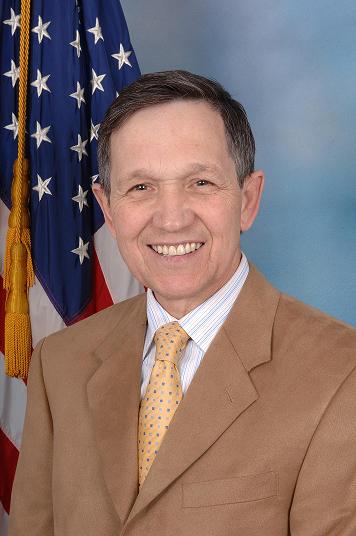Reprinted from Truthdig
Here's how the House's touted "unanimity" was achieved: Under a parliamentary motion termed "unanimous consent," legislative rules can be suspended and any bill can be called up. If any member of Congress objects, the motion is blocked and the bill dies.
At 10:23:54 p.m. on Thursday, a member rose to ask "unanimous consent" for four committees to be relieved of a Russia sanctions bill. At this point the motion, and the legislation, could have been blocked by a single member who would say "I object." No one objected, because no one was watching for last-minute bills to be slipped through.
Most of the House and the media had emptied out of the chambers after passage of the $1.1 trillion government spending package.
According to the clerk's records, once the bill was considered under unanimous consent, it was passed, at 10:23:55 p.m., without objection, in one recorded, time-stamped second, unanimously. Then the House adjourned.
I discovered, in my 16 years in Congress, that many members seldom read the legislation on which they vote. On Oct. 24, 2001, House committees spent long hours debating the Patriot Act. At the last minute, the old bill was swapped out for a version with draconian provisions. I voted against that version of the Patriot Act, because I read it. The legislative process requires attention.
Legislation brought before Congress under "unanimous consent" is not read by most members simply because copies of the bill are generally not available. During the closing sessions of Congress I would often camp out in the House chamber, near the clerk's desk, prepared to say "I object" when something of consequence appeared out of the blue. Dec. 11, 2014, is one of the few times I regret not being in Congress to have the ability to oversee the process.
The Russia Sanctions bill that passed "unanimously," with no scheduled debate, at 10:23:55 p.m. on Dec. 11, 2014, includes:
1. Sanctions of Russia's energy industry, including Rosoboronexport and Gazprom.2. Sanctions of Russia's defense industry, with respect to arms sales to Syria.
3. Broad sanctions on Russians' banking and investments.
4. Provisions for privatization of Ukrainian infrastructure, electricity, oil, gas and renewables, with the help of the World Bank and USAID.
5. Fifty million dollars to assist in a corporate takeover of Ukraine's oil and gas sectors.
6. Three hundred and fifty million dollars for military assistance to Ukraine, including anti-tank, anti-armor, optical, and guidance and control equipment, as well as drones.
7. Thirty million dollars for an intensive radio, television and Internet propaganda campaign throughout the countries of the former Soviet Union.
8. Twenty million dollars for "democratic organizing" in Ukraine.
9. Sixty million dollars, spent through groups like the National Endowment for Democracy, "to improve democratic governance, and transparency, accountability [and] rule of law" in Russia. (What brilliant hyperbole to pass such a provision the same week the Senate's CIA torture report was released.)
(Note: You can view every article as one long page if you sign up as an Advocate Member, or higher).






